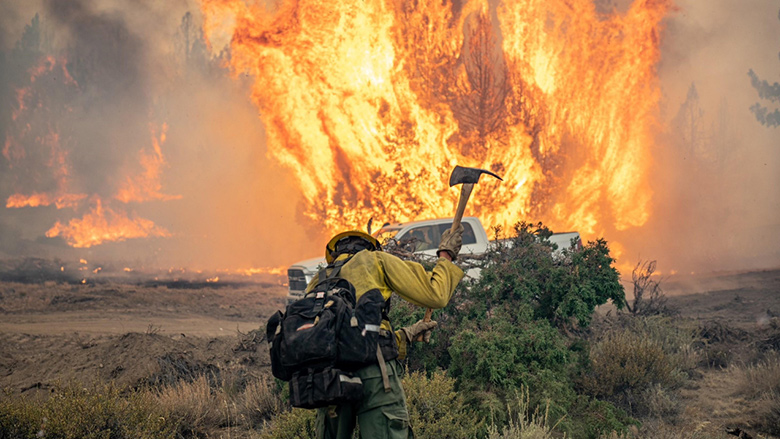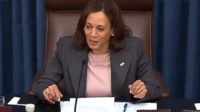The U.S. experienced its second-highest number of billion-dollar weather and climate-related disasters and the fourth warmest year on record in 2021, according to data released by the National Oceanic and Atmospheric Administration on Jan. 10. NOAA attributes the growing number of disasters over the past decades to climate change and a warming planet.
Last year, the U.S. experienced 20 separate billion-dollar weather and climate-related disasters at a total cost of $145 billion and more than 688 lives lost. The number of events was second only to the 22 extreme weather events in 2020 at a cost of $102 billion.
These events included wildfires and drought in the western and southwestern U.S., tornadoes, flooding in Louisiana and California, the Midwest derecho in December, and four tropical cyclones, including Hurricane Ida, the most costly event in 2021 and one of the five most-expensive hurricanes since 1980.
Temperatures were also generally warmer across the U.S. last year. In 2021, the average U.S. temperature was 54.5 ° Fahrenheit, 2.5° above the 20th century average and making 2021 the fourth-warmest year in the 127-year period of record.
Rachel Cleetus, policy director and lead economist for the climate and energy program at the Union of Concerned Scientists, said in a statement that the latest numbers are indicative of a “worsening and undeniable trend” and “underscore the reality of how the climate crisis is already affecting people’s lives.” Between 2016 and 2020, the total cost of U.S. billion-dollar disasters exceeded $600 billion, a new record, and a continuation of an upward trend, according to NOAA’s website.
Environmental groups such as UCS and the Natural Resources Defense Council have urged Congress to pass the $1.7 trillion Build Back Better Act, which includes $550 billion to fund resiliency and renewable energy projects, as well as carbon capture and utilization, direct air capture, hydrogen-related and other projects to reduce carbon emissions. The legislation passed the House in September but is currently stalled in the Senate.






Post a comment to this article
Report Abusive Comment